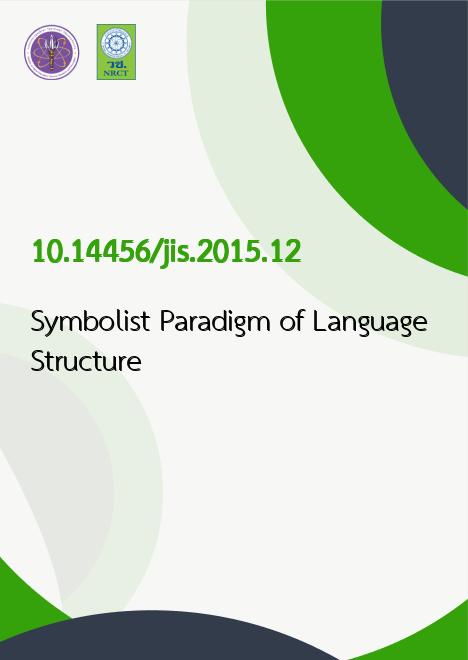
|
Symbolist Paradigm of Language Structure |
|---|---|
| รหัสดีโอไอ | |
| Creator | Wang Mai |
| Title | Symbolist Paradigm of Language Structure |
| Publisher | Faculty of International Studies, Prince of Songkla University |
| Publication Year | 2558 |
| Journal Title | Journal of International Studies, Prince of Songkla University |
| Journal Vol. | 5 |
| Journal No. | 2 |
| Page no. | 109-123 |
| Keyword | Symbolism, connectionism, language structure, Turing machine, finite set |
| URL Website | http://jis.fis.psu.ac.th/index.php/en/ |
| ISSN | 2228-8864 |
| Abstract | Symbolism is one of the main research paradigms of cognitive psychology. It compares the human brain to a Turing Machine and argues that cognitive activity is a process using rules to conduct serial processing on symbols and output new symbolic expressions. Finiteness is the essential requirement of symbolism processor, including finite input, finite state, and finite transition rules. Among the elements of a language, phonemic system, grammatical rules and character system are all finite sets and they meet the requirements of symbolist paradigms; lexical-semantic system is a open set, and it has to be limited to adapt to the requirements at the cost of the detailed semantic meaning. Compared with the symbolist paradigm, connectionist paradigm is a more ideal cognitive and constructive model. |